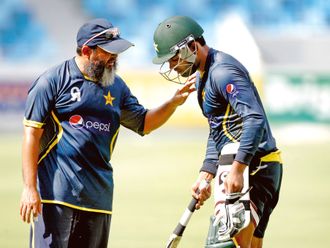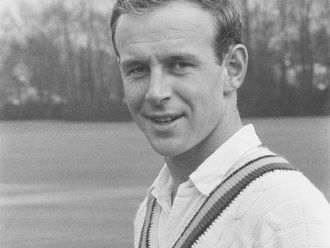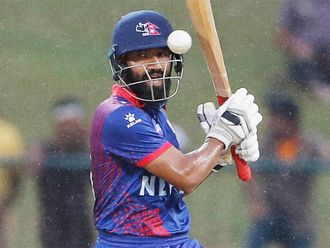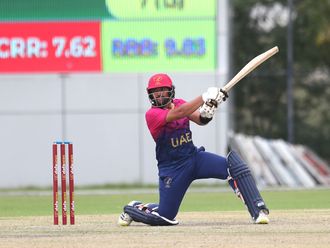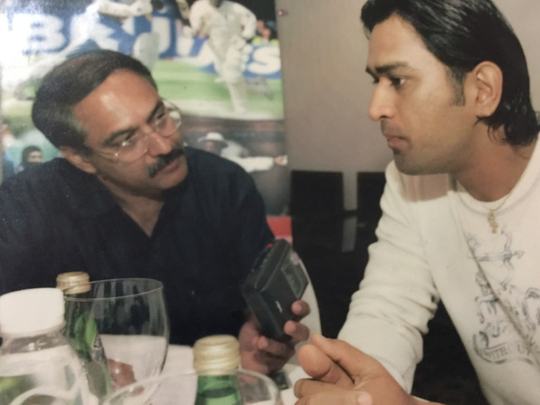
Trailing Mahendra Singh Dhoni as a reporter for over a decade gave me numerous opportunities to get a peek into the life and ways of this gifted cricketer. He is not just a sportsman but a symbol of endurance and determination. As a player, he enjoys doing the impossible and scaling the heights of glory, nonchalantly.
Though born in Ranchi in Bihar, now Jharkhand, a state hardly know for its cricketing talents, he went on to become one of the world’s most admired wicketkeepers and batsmen, and one of the great captains in the game.
Once Dhoni took the reins of Team India as captain, talking to him before and after every international match became routine. Often I would wait for him outside the boundary for his comments on the match along with other journalists, as he warmed up by playing football. It was on one such occasion that I realised he was a good football player too. Later, during conversations with him, he remarked that football and badminton were the two sports he excelled in at school in Ranchi. He was considered an agile goalkeeper, he said.
On another occasion, he revealed that it was a sports journalist who changed the course of his life. It was Chanchal Bhattacharya, a reporter at Ranchi Express, who made a request to Dhoni’s football coach Kesava Ranjan Banerjee, asking for a wicketkeeper to play for the Commando Cricket Club in the Ranchi league. That’s how India got its most successful wicketkeeper, batsman and captain. Though Bhattacharya was hesitant to use a goalkeeper as a wicketkeeper, Banerjee convinced him and the team benefitted from Dhoni’s agility and sharp eyes.
Dhoni, known among his friends as Mahi, took up the challenge of playing cricket despite there being few facilities for the game in his town. In fact, he initially played with canvas balls since cricket balls or tennis balls were not available there. His skill as a wicketkeeper was natural, but once he fell in love with cricket, he developed his skills as a batsman. His talent as a batsman came to the fore when he hit an unbeaten 213 runs for his school DAV Jawahar Vidya Mandir in an inter-school tournament.
In 2001, he got a job as a travelling ticket examiner in Southern Eastern Railway. Once during a trip with him, Dhoni spoke about his days as a ticket examiner in Kharagpur. He used to participate in tennis ball cricket tournaments held in this railway town, and more than 20,000 people used to turn up to watch him in action. He revealed that he played his unique shots, especially the famous ‘helicopter’ shot during those matches.
Spotting the talent in Dhoni, Bhattacharya, who also coached youngsters, shaped him to play in the Vinoo Mankad Under-16 tournament in New Delhi. He excelled in those matches and got selected for the Bihar Under-19 team. By 1999, he was in the Ranji Trophy team, and made his international debut in a One Day Match against Bangladesh at Chittagong in 2004.
A string of low scores followed in the next three matches, but then he hit a stupendous 148 runs against Pakistan at Visakhapatanam in 2005. There was no looking back after this knock, and Dhoni stamped his class as India’s wicketkeeper-batsman.
Speaking to Gulf News he had said: “I did not dream of becoming an international cricketer. All I wanted was to play cricket all the time. I hardly expected to play for my country.”
So what would he consider a turning point in his career?
“It was during India’s tour of Zimbabwe and Kenya that I realised I can make it to the main team. During the latter part of that tour while playing in the one-dayers against Kenya and Pakistan, I got a few centuries and won the man-of-the-series award,” he said.
Though Dhoni performed consistently in international cricket, it was his knock in 2005 at Jaipur’s Mansingh Stadium that got people to accept him as one of the finest wicketkeeper-batsmen in the world. Chasing a target of 299 runs set by Sri Lanka, he hit 183 runs from 145 balls, with 120 of those runs coming from boundaries alone. This was the highest individual score in One Day International cricket history from a batsman in a second innings. He won the man of the series with an aggregate of 346 runs.
While reporting on the India-Pakistan 2006 series in Pakistan, I had the chance to speak to him regularly. During that tour he overtook Australia’s Ricky Ponting as number one batsman in the ODI ranking. That was a time when many crickets fans too began to grow their hair long like Dhoni, prompting even then Pakistan President Pervez Musharraf to request him to never cut his hair.
Fans were always on the look out to know more about Dhoni; so whenever possible I tried to ask about his likes, dislikes, weaknesses and strengths, all of which made good copy for Gulf News.
Along with fame, money too started pouring in for Dhoni. Within a year of his international debut he purchased four motorbikes and used to talk about how he enjoyed riding them on the Ranchi highways. Today, he owns 16 bikes. He also used to talk about his pet dogs Zara, the black Labrador, and Sam, the pug. Dhoni also enjoys playing on his PlayStation.
In 2007 after India’s tour to England, Dhoni became the ODI team captain and then went on to captain the T20 team to a World Cup triumph in the inaugural World Twenty20 championship in South Africa. From then on it was a steady climb for becoming the Test captain too in 2008. Once when he was asked about his ability to fight against all odds, he had said: “When you come from a small town where facilities are not as good as that in a city, you struggle a lot. This way one learns to struggle and perform well.”
Today Dhoni is the richest cricketer with Forbes magazine releasing details of his yearly earnings as $26.5 million (Dh97.3 million); from endorsements alone he earns $23 million. His reputation reached its peak when he led India to victory in 50 over World Cup in 2011 and ensured Chennai Super Kings repeatedly won the Indian Premier League.
For captains around the world, he is Captain Cool. When he was asked what makes him so, his response was: “I always remain positive, never get depressed and never allow myself to get disappointed. The adulation from my fans reminds me that I have to work hard. I know that if I fail I will be criticised. So I try and give hundred percent all the time.”
Don’t miss it!
M.S. Dhoni: The Untold Story releases in the UAE on September 29.



